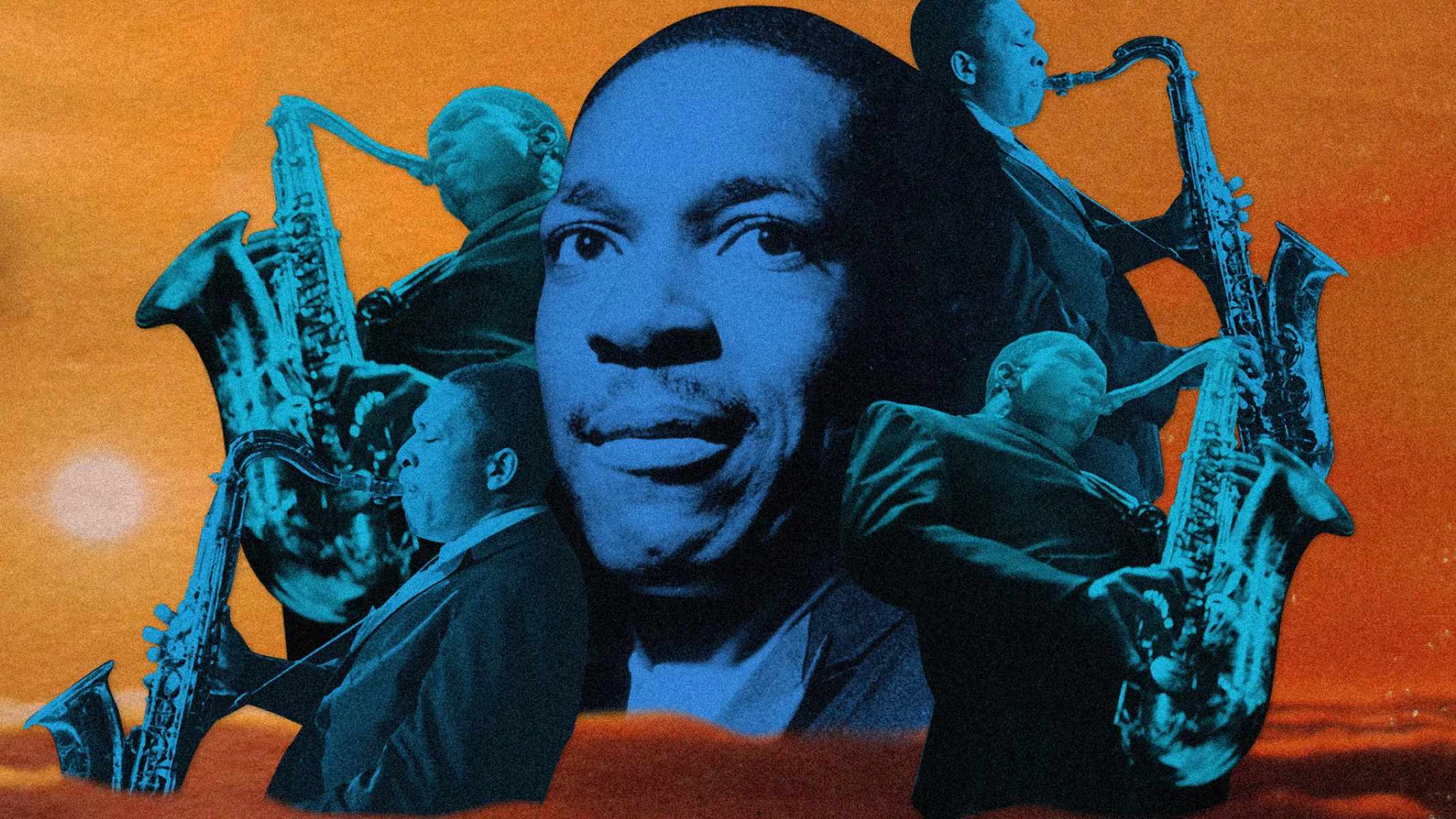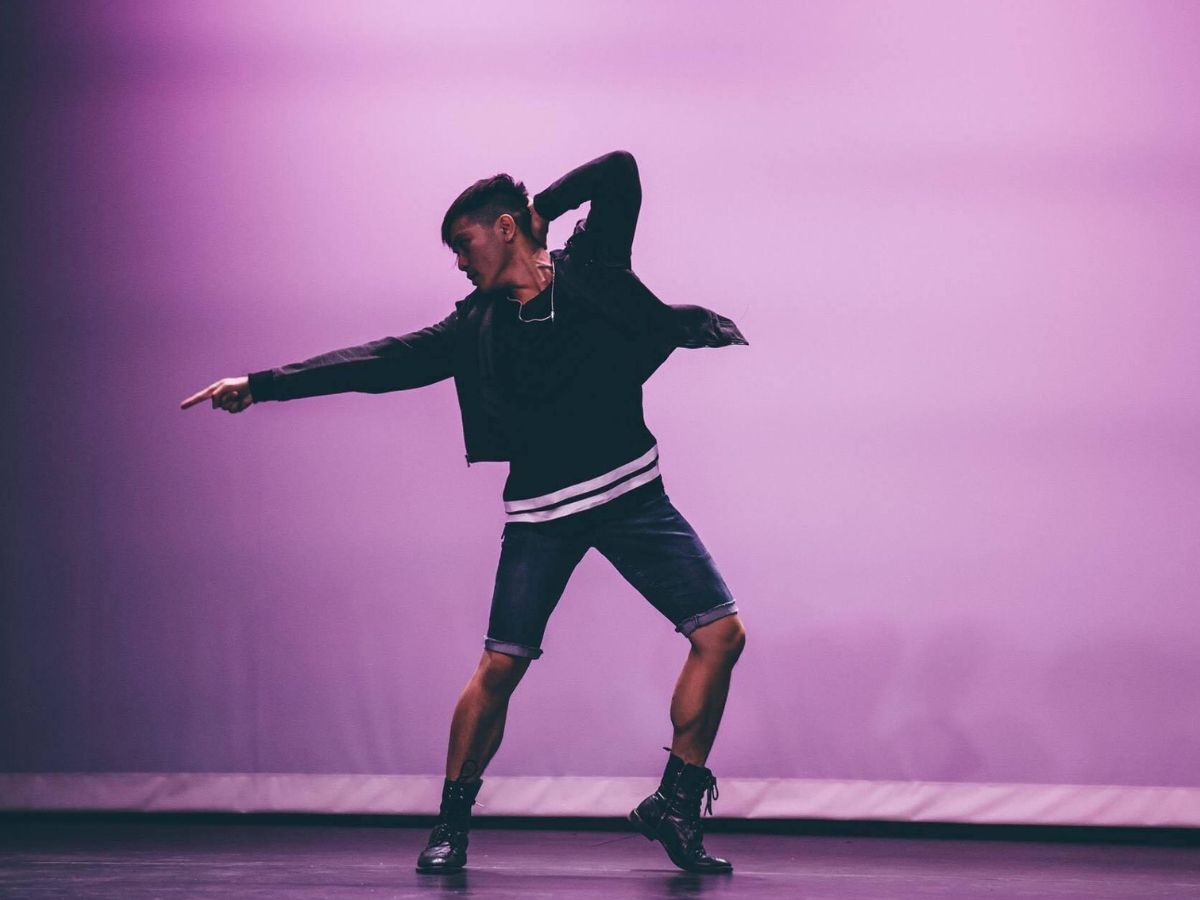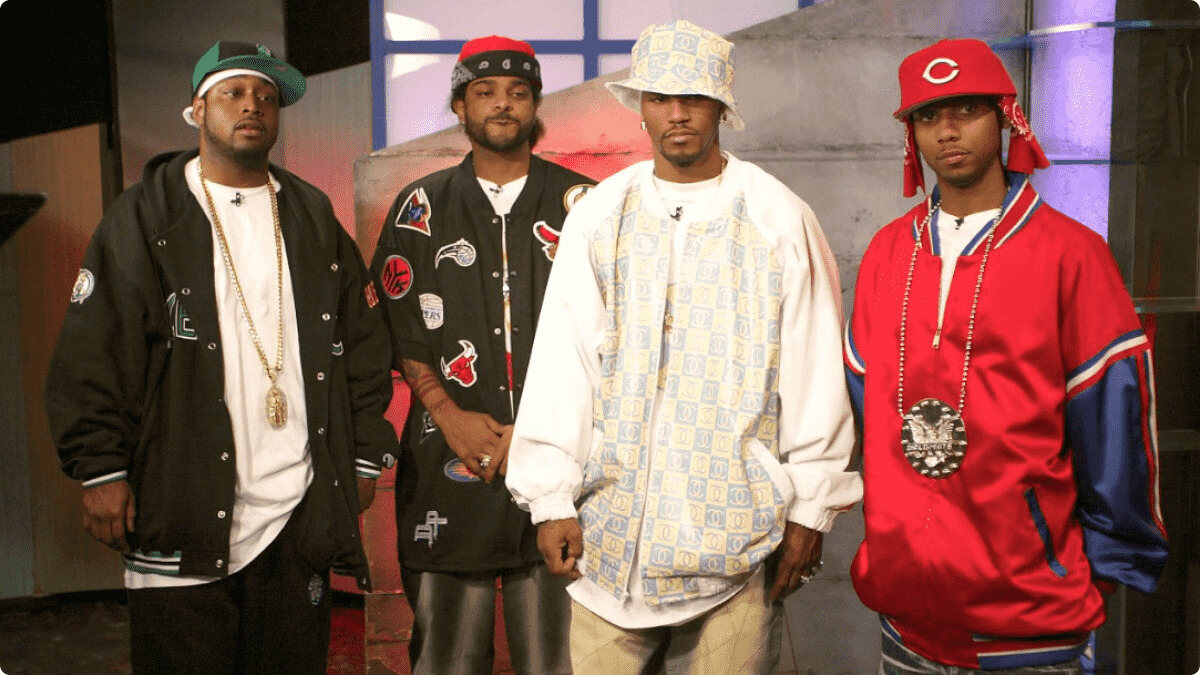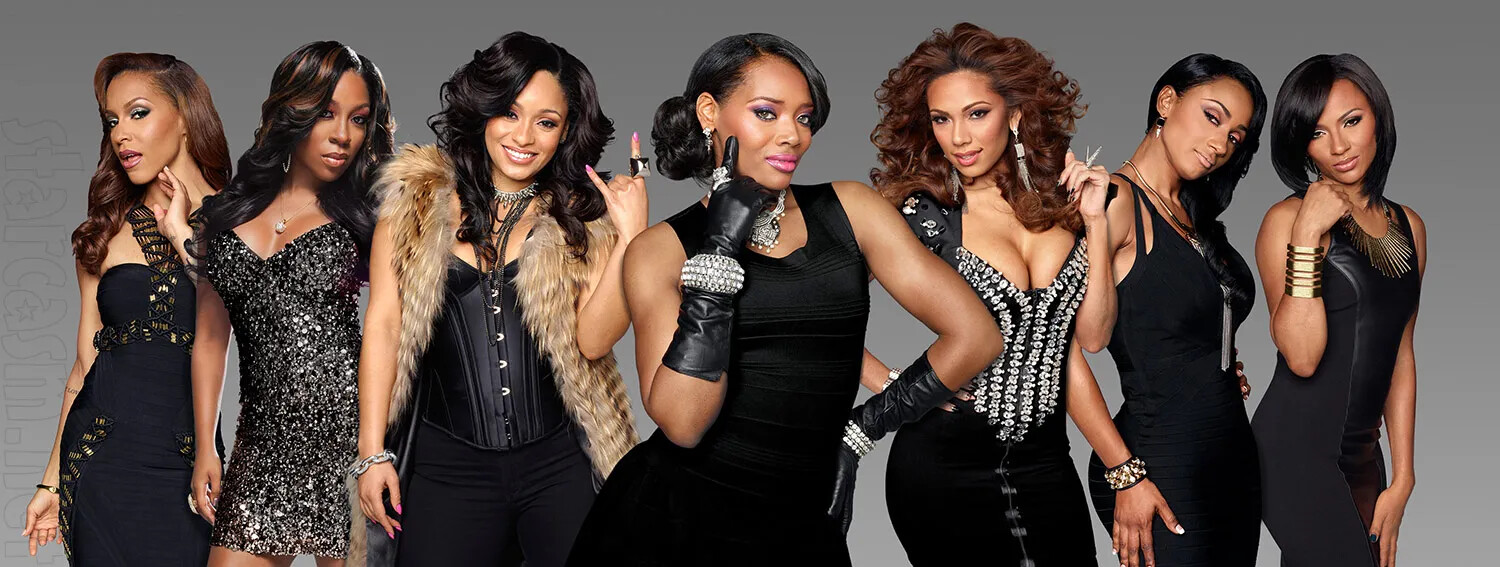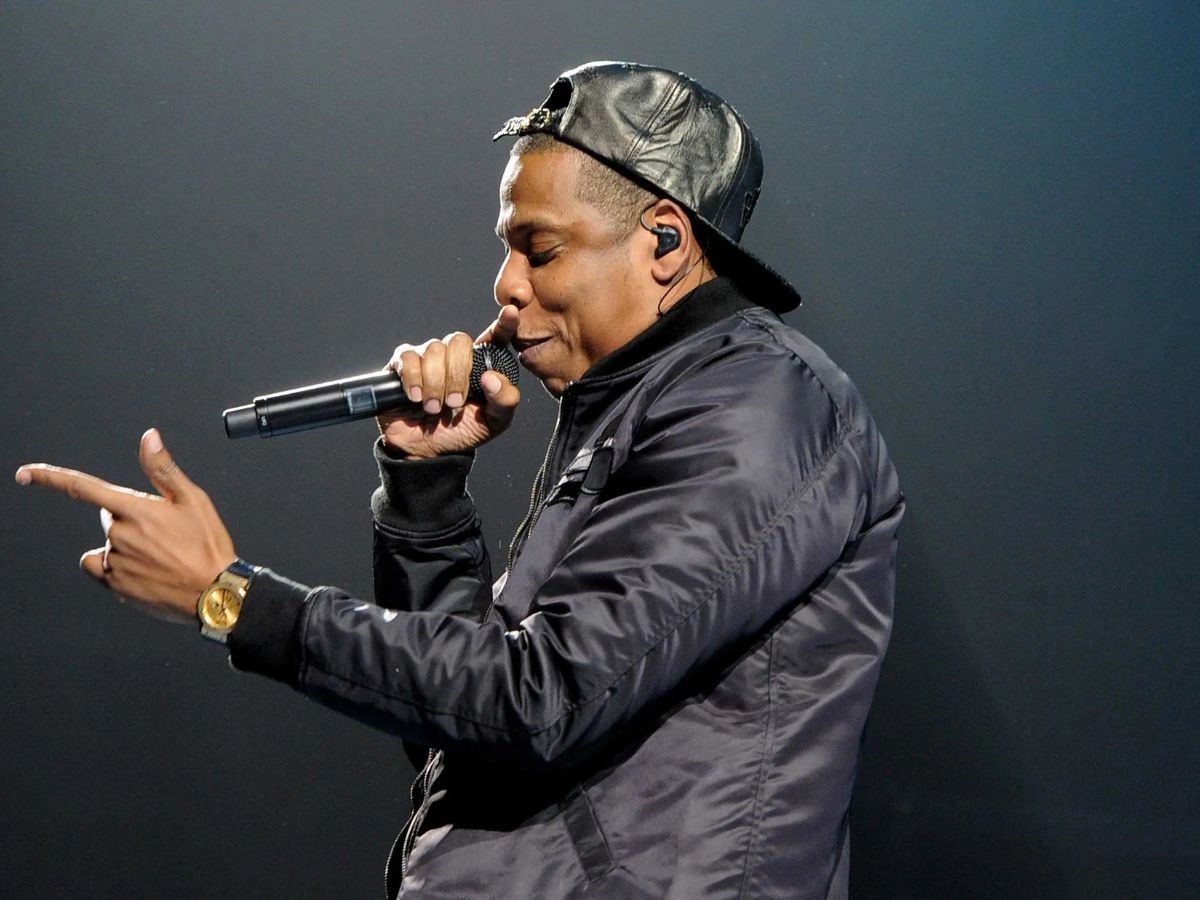Home>Genres>Hip Hop>Why Is Hip Hop Important To Youth Culture


Hip Hop
Why Is Hip Hop Important To Youth Culture
Modified: January 25, 2024
Discover the immense significance of Hip Hop in youth culture and its transformative power. Explore the influence, creativity, and expression that Hip Hop brings to young people's lives.
(Many of the links in this article redirect to a specific reviewed product. Your purchase of these products through affiliate links helps to generate commission for AudioLover.com, at no extra cost. Learn more)
Table of Contents
- Introduction
- Historical Context of Hip Hop
- Influence of Hip Hop on Youth Culture
- Self-Expression and Identity Formation in Hip Hop
- Social and Political Awareness in Hip Hop
- Cultural Diversity and Inclusivity in Hip Hop
- Creativity and Entrepreneurship in Hip Hop
- Positive Impact of Hip Hop on Youth Development
- Criticisms and Controversies Surrounding Hip Hop
- Conclusion
Introduction
Hip hop emerged in the late 1970s as a cultural movement in the African-American communities of the Bronx, New York City. What began as a form of expression in the streets and dance floors of the inner city has since evolved into a worldwide phenomenon, shaping the music industry, fashion trends, and even politics. It is a genre that goes beyond just music; it is a cultural force that has a profound impact on youth culture.
At its core, hip hop is a medium that gives a voice to the marginalized and disenfranchised. It speaks to the struggles and aspirations of a generation that often feels unheard and overlooked. Through its elements of music, dance, fashion, graffiti, and spoken word, hip hop provides a platform for creative expression and self-empowerment.
Today, hip hop has become a global phenomenon, transcending boundaries of race, ethnicity, and nationality. It has influenced youth culture around the world, inspiring millions of young people to express themselves authentically and creatively.
In this article, we will explore the historical context of hip hop, its influence on youth culture, the importance of self-expression and identity formation within the genre, its role in raising social and political awareness, the celebration of cultural diversity and inclusivity, the impact on entrepreneurship and creativity, as well as the positive and negative aspects associated with hip hop in regards to youth development.
Join us on this journey as we delve into the fascinating world of hip hop culture and unlock the reasons why it holds such importance to today’s youth.
Historical Context of Hip Hop
Hip hop was born out of the social and economic challenges faced by African-American communities in the Bronx during the 1970s. Creatively responding to poverty, racism, and urban decay, young people in these neighborhoods turned to music and dance as a means of self-expression and empowerment.
The origins of hip hop can be traced back to block parties, where DJs would mix records and MCs would rap over the beats. This laid the foundation for what would become the two fundamental pillars of hip hop culture: rap music and breakdancing.
As hip hop gained popularity, it provided a cultural outlet for young people to express themselves and tell their stories. Through rap verses filled with clever wordplay, vivid imagery, and social commentary, artists addressed issues such as inequality, police brutality, and urban living conditions.
The emergence of hip hop coincided with the rise of graffiti as an art form. Graffiti artists used the city’s walls and subway trains as their canvas, creating colorful and intricate murals that reflected the vibrancy and energy of the culture.
As the 1980s rolled in, hip hop started to garner attention from mainstream media and record labels. Artists like Run DMC, Grandmaster Flash, and Public Enemy rose to fame, solidifying hip hop’s place in the music industry. The genre continued to evolve, incorporating elements of funk, soul, and jazz, leading to the birth of subgenres like gangsta rap, conscious rap, and alternative hip hop.
Today, hip hop has become an integral part of popular culture, with its influence extending beyond music to fashion, film, and even technology. It has become a global phenomenon, with artists and fans from all corners of the world embracing the culture and contributing to its ongoing evolution.
Understanding the historical context of hip hop allows us to appreciate the significance of this cultural movement in shaping youth culture. It serves as a reminder of the resilience and creativity of those who started it all and the lasting impact hip hop continues to have on generations to come.
Influence of Hip Hop on Youth Culture
Hip hop has had a profound influence on youth culture, shaping the way young people think, dress, and express themselves. It has become a powerful force that transcends borders and influences people from all walks of life. Let’s explore some of the key ways hip hop has impacted youth culture.
- Musical Influence: Hip hop has revolutionized the music industry, introducing new sounds, beats, and lyrical styles. It has inspired countless young musicians to pursue their dreams and express themselves through music. From the powerful verses of influential rappers to the catchy hooks of chart-topping songs, hip hop has become a dominant force in shaping popular music trends.
- Fashion and Style: Hip hop has had a significant impact on fashion and style trends. From urban streetwear to high-end designer collaborations, hip hop fashion is characterized by boldness, creativity, and a sense of individuality. Rappers and artists have become style icons, influencing the way young people dress and present themselves.
- Artistic Expression: Hip hop encompasses various art forms such as graffiti, breakdancing, DJing, and beatboxing. These art forms have provided avenues for young people to showcase their talents and express themselves creatively. The graffiti art seen in cities around the world is heavily influenced by hip hop culture, bringing vibrancy and urban art to public spaces.
- Language and Slang: The lyrical proficiency and wordplay in hip hop music have introduced new phrases, slang, and expressions into everyday language. It has created a unique cultural lexicon that resonates with youth and has permeated mainstream culture. Hip hop has the power to shape and redefine language, giving young people a platform for self-expression.
- Social Activism: Hip hop has a long history of addressing social issues and advocating for change. From songs that shed light on systemic racism and social injustice to artists using their platforms to raise awareness and mobilize communities, hip hop has become a voice for the voiceless. It has inspired young people to be socially conscious and actively engage in activism and community organizing.
The influence of hip hop on youth culture cannot be overstated. It has provided a platform for self-expression, creativity, and activism. Whether through music, fashion, or art, hip hop has given young people a voice and empowered them to challenge societal norms and make their mark on the world.
Self-Expression and Identity Formation in Hip Hop
Hip hop culture is a space where individuals can freely express themselves and explore their identities. It celebrates individuality, encourages self-confidence, and provides a platform for marginalized voices to be heard. Let’s delve into how hip hop fosters self-expression and influences identity formation among its participants.
One of the key elements of hip hop is rap music, where artists use clever wordplay, storytelling, and personal experiences to express themselves. Through their lyrics, artists can openly share their struggles, triumphs, and perspectives, allowing listeners to connect on a deep and personal level. Young aspiring artists are inspired to find their unique voices and use hip hop as an outlet to express their thoughts, emotions, and experiences.
Moreover, hip hop fashion has created a visual language that allows individuals to express their personal style and identity. From oversized attire to vibrant colors and eccentric accessories, hip hop fashion has become synonymous with self-expression and rebellion against societal norms. This style allows young people to break free from traditional fashion conventions and embrace their individuality.
Another form of self-expression in hip hop comes through dance. Breakdancing, also known as b-boying or b-girling, is a dynamic and energetic dance style that allows individuals to showcase their athleticism and creativity. Through breakdancing, individuals can express their emotions, tell stories, and command attention with their unique moves.
In addition to music and fashion, hip hop provides a platform for marginalized communities to reclaim their identities and challenge social norms. It has been particularly empowering for young Black and Latinx individuals, who have historically faced discrimination and limited opportunities for self-expression. Hip hop offers a space where they can celebrate their culture, voice their experiences, and assert their identities proudly.
Through the exploration of different art forms within hip hop, young people have the opportunity to develop a strong sense of self and cultivate their identities. Whether it’s through rap, fashion, dance, or visual art, hip hop empowers individuals to express themselves authentically and embrace their unique identities.
Ultimately, hip hop creates an environment where young people can find their voice, celebrate their cultural heritage, and navigate the complexities of identity formation. It encourages self-acceptance, fosters confidence, and fuels a sense of empowerment among its participants.
Social and Political Awareness in Hip Hop
Hip hop has long been a powerful vehicle for social and political awareness, shining a light on the issues and injustices faced by marginalized communities. Through its lyrics, artists are able to address systemic inequality, police brutality, poverty, and other pressing social and political issues. Let’s explore how hip hop promotes social and political awareness among its listeners and participants.
One of the defining characteristics of hip hop is its ability to give a voice to the voiceless. Hip hop artists often use their platforms to speak out against social injustices and advocate for change. Through their lyrics, they highlight the realities of life in underserved communities, shedding light on the struggles and obstacles faced by marginalized individuals.
Hip hop also serves as a means of education and enlightenment, providing listeners with a glimpse into the experiences and perspectives of communities that are often overlooked. By sharing their personal stories and offering social commentary, artists challenge systemic issues and encourage critical thinking among their audience.
Moreover, hip hop has a long history of social and political activism. From the pioneering work of artists like Public Enemy and N.W.A. in the 1980s to the more recent efforts of artists like Kendrick Lamar and J. Cole, hip hop has been at the forefront of important social and political movements. Artists use their music and influence to mobilize communities, raise awareness, and demand change.
In addition to the music itself, hip hop culture fosters a sense of community and social consciousness. Through events such as benefit concerts, community outreach programs, and grassroots initiatives, hip hop artists and enthusiasts actively engage in social and political activism. They understand the power of the culture to effect positive change, and they use it as a tool for social justice.
Furthermore, hip hop has an international reach, making it a powerful force for global social and political awareness. Artists from different countries and cultures use hip hop as a medium to address local issues and shed light on the struggles faced by their communities. This cross-cultural exchange fosters a sense of unity and global solidarity among hip hop enthusiasts worldwide.
Through its lyrics, activism, and cultural impact, hip hop continues to raise social and political awareness in profound ways. It serves as a catalyst for change, empowering individuals to question the status quo and work towards a more just and equitable society.
Cultural Diversity and Inclusivity in Hip Hop
Hip hop is a cultural movement that embraces and celebrates diversity, making it one of the most inclusive art forms in the world. It emerged from the African-American communities of the Bronx but has since grown to incorporate a multitude of voices, cultures, and perspectives. Let’s explore the ways in which hip hop promotes cultural diversity and inclusivity.
One of the greatest strengths of hip hop is its ability to transcend geographical and cultural boundaries. Artists from various backgrounds and ethnicities have embraced hip hop and contributed to its evolution. This diversity is reflected in the music, with artists blending different genres, languages, and cultural elements to create a unique and dynamic sound.
Hip hop has also created opportunities for underrepresented communities to shine and be recognized for their talent. Artists from marginalized backgrounds have been able to break into the mainstream and have their voices heard, challenging stereotypes and misconceptions. This inclusivity has enabled hip hop to reflect the experiences of a diverse range of people and foster a sense of belonging for those who feel marginalized in society.
Moreover, hip hop culture has inspired individuals from all walks of life to express themselves creatively. From aspiring musicians to dancers, graffiti artists to fashion designers, hip hop provides a platform for people to showcase their talents and celebrate their cultural heritage. This creative exchange has contributed to the vibrant and ever-evolving nature of hip hop.
Cultural appreciation is another essential element of hip hop. Artists often pay homage to the pioneers who paved the way for the genre, acknowledging the cultural foundations upon which hip hop was built. This acknowledgement fosters a sense of respect and understanding for the roots of the culture while encouraging innovation and exploration of new artistic expressions.
Furthermore, hip hop serves as a bridge between generations, connecting the past with the present. Older artists pass down their knowledge and experiences to younger generations, ensuring that the culture remains alive and continues to evolve. This intergenerational exchange helps preserve the cultural diversity within hip hop and encourages the inclusion of new voices and perspectives.
Overall, hip hop’s embrace of cultural diversity and inclusivity has contributed to its enduring popularity and global reach. It has broken down barriers and united people from different backgrounds and cultures through a shared love for the art form. Hip hop continues to remind us of the importance of embracing diversity, celebrating cultural heritage, and creating spaces where everyone’s voice can be heard.
Creativity and Entrepreneurship in Hip Hop
Hip hop culture has not only revolutionized the music industry but has also fostered a climate of creativity and entrepreneurship. It has provided a platform for individuals to showcase their talents, build businesses, and create opportunities for themselves and their communities. Let’s explore how hip hop promotes creativity and entrepreneurship.
One of the defining elements of hip hop is its emphasis on innovation and creativity. From the beats and lyrics in rap music to the intricate dance moves in breakdancing, hip hop encourages artists to push the boundaries and think outside the box. This culture of creativity has given rise to countless talented individuals who constantly strive to bring fresh ideas and unique perspectives to the forefront.
Furthermore, hip hop has become a fertile ground for entrepreneurial endeavors. Artists often take on the role of not only musicians but also business owners, fashion designers, record label founders, and more. They leverage their talent and brand to create avenues for financial independence and success.
Through their entrepreneurial initiatives, hip hop artists have built empires and established themselves as influential figures in various industries. From Jay-Z’s Roc Nation to Diddy’s Bad Boy Entertainment, these artists-turned-entrepreneurs have ventured into fashion, film, liquor, and other sectors, proving that the creativity and hustle that drive hip hop can be directed towards building successful businesses.
Moreover, hip hop’s independent spirit has given rise to a vibrant underground scene. Independent record labels and artists often use grassroots marketing and digital platforms to release their music, bypassing traditional gatekeepers. This DIY mentality has allowed artists to maintain creative control and has given rise to a thriving independent music industry within hip hop.
Hip hop culture also fosters a sense of community and collaboration, which fuels entrepreneurship. Artists often come together to form collaborations and partnerships, leveraging their unique skills and networks to create collective success. By supporting and promoting each other’s work, they strengthen the hip hop community and create a pathway for collective growth and prosperity.
Furthermore, hip hop has opened doors for individuals to engage in various creative pursuits. The culture has given birth to successful DJs, producers, filmmakers, fashion designers, photographers, and more. It has inspired individuals to explore their entrepreneurial ambitions in a range of artistic fields.
Overall, hip hop culture empowers individuals to embrace their creativity and turn their passions into entrepreneurial ventures. The emphasis on innovation, independence, and collaboration provides a fertile ground for artists and entrepreneurs to thrive. Through their enterprises, they create opportunities, economic empowerment, and cultural influence, shaping not only the industry but also the broader entrepreneurial landscape.
Positive Impact of Hip Hop on Youth Development
Hip hop culture has had a positive impact on the development of young people, providing them with a platform for self-expression, empowerment, and personal growth. From building confidence to fostering creativity and promoting resilience, hip hop has been a catalyst for positive change in youth development. Let’s explore some of the ways in which hip hop has made a positive impact on the lives of young people.
One of the most significant contributions of hip hop to youth development is its ability to instill confidence and self-esteem. Hip hop offers a medium for young people to express themselves authentically, embrace their individuality, and find their voice. Through rap music, dance, visual art, and fashion, young people can channel their energy and emotions, building a sense of confidence and self-assuredness.
Hip hop is also a vehicle for creativity and innovation. The culture encourages young people to think creatively, break boundaries, and explore different artistic expressions. Whether it’s writing and performing rap lyrics, creating graffiti art, or developing new dance moves, hip hop empowers young people to tap into their creative potential and cultivate their talents.
Furthermore, hip hop promotes resilience and the ability to overcome challenges. Many artists in the genre have faced adversity and hardship, using their art as a means of resilience and empowerment. Young people who identify with the struggles addressed in hip hop music can find solace and inspiration in the stories of resilience shared by their favorite artists, motivating them to face their own obstacles with determination.
Hip hop culture also fosters a sense of community and belonging among young people. It provides a space where individuals with diverse backgrounds and experiences can come together, share their stories, and support one another. This sense of belonging can be particularly impactful for young people who may feel marginalized or isolated in their daily lives.
Moreover, hip hop serves as a source of knowledge and education. Through the powerful storytelling of its lyrics, hip hop sheds light on social and political issues, historical events, and cultural heritage. Young people can gain valuable insights and perspectives on topics often excluded from mainstream education, broadening their understanding of the world and encouraging critical thinking.
In addition, hip hop can inspire and motivate young people to pursue their dreams and set goals. Artists who have risen from humble beginnings to achieve success serve as role models for aspiring musicians, entrepreneurs, and creatives. Their stories of perseverance and triumph demonstrate that with hard work and dedication, anything is possible.
Overall, hip hop culture has had a positive impact on youth development by fostering confidence, creativity, resilience, community, knowledge, and inspiration. It provides a platform for young people to express themselves, find their passion, and navigate the challenges of adolescence with resilience and determination.
Criticisms and Controversies Surrounding Hip Hop
While hip hop culture has undeniably had a significant impact on youth culture and society as a whole, it has also faced its fair share of criticisms and controversies. These concerns range from the portrayal of negative stereotypes to the glorification of violence and materialism. It is important to examine the criticisms surrounding hip hop to have a holistic understanding of its influence. Let’s explore some of the common criticisms and controversies surrounding hip hop.
One of the primary criticisms of hip hop is its lyrical content. Some argue that certain rap lyrics perpetuate negative stereotypes, glorify violence, and promote misogyny. Critics contend that these lyrics can have a detrimental influence on impressionable young listeners, normalizing harmful behaviors and attitudes.
In addition, hip hop has faced accusations of materialism and promoting a hyper-consumerist culture. The focus on luxury brands, flashy jewelry, and material possessions in music videos and lyrics has been criticized for promoting shallow values and prioritizing material wealth over more meaningful aspirations.
Sexism and misogyny within hip hop have also been points of contention. Some argue that certain lyrics and music videos objectify women and perpetuate harmful gender dynamics. Critics point to the prevalence of derogatory language and the objectification of women as evidence of the genre’s problematic treatment of gender issues.
Another criticism centers on the glorification of violence in some hip hop music. Critics argue that the portrayal of aggression, gun violence, and criminal activity can perpetuate a cycle of violence and negatively influence young listeners. This portrayal of violence has prompted concerns about the impact on the communities that hip hop represents and claims to empower.
Furthermore, hip hop has been criticized for its perceived lack of diversity in representation. Critics argue that the genre often reinforces narrow stereotypes, particularly regarding race and socioeconomic status. This lack of diversity can contribute to the marginalization of certain voices and limit the potential for truly inclusive and representative storytelling within hip hop.
While these criticisms are important to address, it is crucial to recognize that hip hop is not a monolithic entity. It is a multi-faceted culture with diverse artists who use the genre as a means of personal expression and social commentary. There are artists within hip hop who actively challenge these criticisms and use their platforms to inspire positive change.
As with any form of artistic expression, it is essential to approach hip hop with a critical lens, acknowledging both the strengths and the flaws. By engaging in constructive dialogue and working towards greater representation, inclusivity, and ethical responsibility, hip hop has the potential to address these criticisms and continue to evolve as a positive force within the youth culture and society at large.
Conclusion
Hip hop has proven to be a powerful cultural movement that has had a profound impact on youth culture and society as a whole. From its humble beginnings in the Bronx to its global reach today, hip hop has evolved into a multi-dimensional phenomenon, influencing music, fashion, art, and social activism.
Throughout its history, hip hop has provided a platform for self-expression, creativity, and empowerment. It has given a voice to the marginalized and empowered young people to tell their stories, challenge societal norms, and demand change. Hip hop has celebrated diversity, encouraged inclusivity, and brought different cultures and perspectives together under one universal language.
While it is important to address the criticisms and controversies surrounding hip hop, we should also recognize the positive contributions it has made to youth development. Hip hop has fostered confidence, creativity, resilience, and a sense of community among young people. It has sparked entrepreneurial endeavors and created opportunities for economic empowerment.
Moreover, hip hop has been a driving force in raising social and political awareness. It has been a platform for activism, shining a light on social injustices and inspiring individuals to use their voice and talents to effect change. Hip hop has pushed boundaries, broken barriers, and challenged the status quo.
As we conclude this exploration of hip hop’s importance to youth culture, it is clear that hip hop is more than just a genre of music. It is a cultural force that empowers young people, encourages self-expression, and promotes social and political consciousness. While it faces criticisms, it is through open dialogue and continued efforts towards inclusivity and ethical responsibility that hip hop can continue to be a positive influence on the lives of young people.
So let us acknowledge and celebrate the transformative power of hip hop and its enduring legacy in shaping youth culture. As its influence continues to evolve and impact future generations, let us embrace the inspiration, creativity, and empowerment that hip hop provides, ensuring its positive impact on youth culture endures.



